Understanding Dissociative Drug Therapy
Dissociative drugs are a class of psychoactive substances that cause a sense of detachment from reality. These drugs can induce altered states of consciousness, affecting perception, mood, and cognition. Common examples include ketamine and phencyclidine (PCP). Ketamine, initially developed as an anesthetic, has gained attention for its rapid-acting antidepressant effects. PCP, once used for medical purposes, is now primarily known for its recreational abuse potential.
Historical Context
The medical use of dissociative drugs dates back several decades. Ketamine was first synthesized in 1962 and approved for medical use in 1970. It was primarily used as an anesthetic during the Vietnam War due to its safety profile and rapid action. Over time, researchers noticed its potential for treating mental health conditions, leading to its repurposing for psychiatric use. PCP, synthesized in the 1950s, was initially developed as an anesthetic but was discontinued due to severe side effects.
Therapeutic Use
Dissociative drugs are being repurposed for mental health treatments, particularly for conditions like severe depression and post-traumatic stress disorder (PTSD). Ketamine, for instance, is administered in controlled clinical settings to provide rapid relief for treatment-resistant depression. Its efficacy in reducing depressive symptoms within hours has positioned it as a valuable tool in psychiatric care. Similarly, ongoing research explores the potential benefits of other dissociative drugs in treating various mental health disorders.
Mechanism of Action
Neurochemical Pathways
Dissociative drugs primarily target the brain's glutamate system, specifically the N-methyl-D-aspartate (NMDA) receptors. Ketamine acts as an NMDA receptor antagonist, blocking the activity of glutamate, a neurotransmitter involved in synaptic plasticity and cognitive function. This blockade leads to an increase in brain-derived neurotrophic factor (BDNF) levels, promoting neurogenesis and synaptic connectivity.
Effects on Brain Function
By altering glutamate activity, dissociative drugs can significantly affect brain function. They induce a state of dissociation, where individuals feel detached from their surroundings and themselves. This altered state can lead to changes in perception, mood, and cognition, providing relief from depressive and anxious symptoms. The rapid onset of these effects distinguishes dissociative drugs from traditional treatments, which often take weeks to show results.
Comparisons with Traditional Treatments
Traditional antidepressants, such as selective serotonin reuptake inhibitors (SSRIs), primarily target the serotonin system. These medications increase serotonin levels in the brain, gradually alleviating depressive symptoms. In contrast, dissociative drugs like ketamine offer a different mechanism of action, targeting the glutamate system and providing faster relief. This unique approach makes dissociative drug therapy a promising option for individuals who do not respond to conventional treatments.
Current Research and Evidence
Clinical Trials
Recent clinical trials have demonstrated the efficacy of dissociative drug therapy in treating mental health conditions. For instance, a study published in the American Journal of Psychiatry found that ketamine infusions significantly reduced depressive symptoms in patients with treatment-resistant depression. These findings highlight the potential of dissociative drugs as a valuable addition to psychiatric treatment options.
Case Studies
Numerous case studies illustrate the positive impact of dissociative drug therapy on patients. For example, a patient with severe depression who had not responded to traditional treatments experienced significant improvement after a series of ketamine infusions. These case studies provide real-world evidence of the therapeutic benefits of dissociative drugs.
Expert Opinions
Leading researchers and clinicians emphasize the potential of dissociative drug therapy in revolutionizing mental health treatment. Dr. John Krystal, a prominent psychiatrist and researcher, notes, "Ketamine represents one of the most exciting developments in the treatment of depression in decades". These expert insights underscore the growing recognition of dissociative drugs in the psychiatric community.
Patient Experience
Treatment Process
During dissociative drug therapy sessions, patients can expect a controlled and supportive environment. The treatment typically involves intravenous administration of the drug, with sessions lasting about 40 minutes to an hour. Patients are monitored closely by healthcare professionals to ensure safety and comfort throughout the process.
Side Effects
Common side effects of dissociative drug therapy include dizziness, nausea, and transient dissociation. These side effects are usually manageable and temporary. Healthcare providers take measures to minimize discomfort and ensure patient safety during treatment.
Success Stories
Many patients have reported life-changing improvements after undergoing dissociative drug therapy. For instance, an individual suffering from chronic PTSD experienced a significant reduction in symptoms and improved quality of life following ketamine treatment. These success stories highlight the potential of dissociative drugs to provide relief for individuals with severe mental health conditions.
Ethical Considerations
Informed Consent
Informed consent is a crucial aspect of dissociative drug therapy. Patients must be fully informed about the potential risks and benefits of the treatment before proceeding. Healthcare providers ensure that patients understand the procedure and have the opportunity to ask questions and express concerns.
Potential for Abuse
Concerns about the potential for misuse and addiction are valid when considering dissociative drug therapy. While ketamine has a lower risk of addiction compared to other substances, it is essential to use it in a controlled clinical setting to minimize the risk of abuse. Healthcare providers closely monitor patients to ensure responsible use of the medication.
Regulatory Guidelines
The use of dissociative drugs in therapy is governed by strict regulatory guidelines. In the United States, the Food and Drug Administration (FDA) has approved ketamine for treatment-resistant depression under specific conditions. These guidelines ensure that the treatment is administered safely and effectively.
Controlled Environment
Clinical Setting
Dissociative drug therapy must be administered in a controlled clinical environment to ensure patient safety. The clinical setting allows healthcare providers to monitor patients closely and respond promptly to any adverse effects. This controlled environment is essential for the safe and effective delivery of the treatment.
Monitoring and Safety
Monitoring procedures are in place to ensure patient safety during dissociative drug therapy. Healthcare providers continuously assess vital signs and mental status throughout the treatment session. This vigilant monitoring helps identify and address any potential complications promptly.
Role of Healthcare Providers
Psychiatrists, nurses, and other healthcare providers play a critical role in administering and monitoring dissociative drug therapy. Psychiatrists oversee the treatment plan and dosage, while nurses provide hands-on care during the sessions. This collaborative approach ensures that patients receive comprehensive and safe care.
Dissociative drug therapy represents a promising advancement in the field of mental health treatment. With a growing body of research supporting its efficacy, this innovative approach offers hope for individuals struggling with severe depression and PTSD. By understanding the mechanisms, current evidence, and ethical considerations, patients and healthcare providers can make informed decisions about incorporating dissociative drug therapy into mental health care plans.
Discover how dissociative drug therapy could be the breakthrough treatment you've been seeking. If you or a loved one are struggling with treatment-resistant depression or PTSD,
contact us today to learn more about this innovative approach and how we can help you find relief in a safe, controlled setting.











